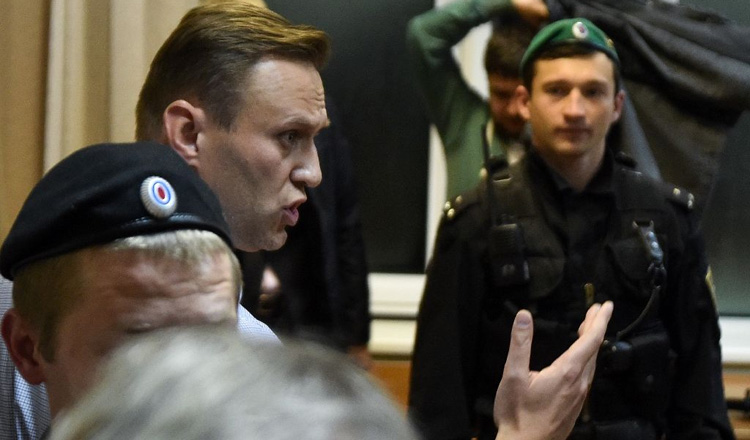
Russian society should have been the first to react to Alexei Navalny’s predicament. But do not expect tens of thousands of people at the gates of the Kremlin, chanting “We won’t forget, we won’t forgive,” as they usually do during anti-Putin protests.
Fear is still a potent political tool in Russia. But for many, especially the young and those who are politically-minded, the poisoning will be a milestone, a political coming of age, a moment when any illusions of orderly change were shattered.
Who can replace Navalny?
Navalny is not just a “blogger,” as the Kremlin’s propagandists like to call him. He is a politician who has actively formulated an alternative political and economic agenda for Russia. Even his temporary departure from the political scene is a blow to all critics of the Kremlin. It is difficult to replace him.
The question is how cohesive and organised his supporters are. The inability to garner broad popular support has plagued all Russian anti-authoritarian movements for centuries, starting with the “Decembrist” uprising in 1825.
Will it be different this time? Has Russia really changed in the last 30 years – the most free and prosperous period in its more than 1,000-year history?
Putin hopes for the best
The situation is a challenge for Germany, the European Union and the West in general. Merkel recognised that she had to go beyond the usual platitudes of concern the Kremlin is used to hearing from Berlin and other EU capitals – and is counting on now.
Putin is accustomed to the fact that as far as Russia is concerned, the EU is split. There are those who believe that after Georgia, Crimea, Donbass, flight MH17, the murder of Boris Nemtsov and the intervention in Syria, only the toughest line is possible with regard to Moscow. These are mainly Central European and Baltic countries.
Then there are those who believe that under any circumstances, it is necessary to “engage” Russia. Without its participation one cannot resolve the conflict in Syria, reconcile Libya, save the nuclear deal with Iran, etc.
Putin has always seen this attitude as evidence that the Germans and Europeans in general are weak in the face of the Kremlin’s well-practiced political-military unpredictability and that they depend on Gazprom’s gas. The fact that, with the exception of Latvia, Lithuania and Estonia, the EU has not yet imposed promised sanctions against Alexander Lukashenko’s regime in Belarus merely confirms Putin’s belief that intransigence and toughness are the right tools to deal with the EU.
No one really expects an objective and transparent investigation from Moscow into the poisoning. The key question now is how seriously Germany and its EU and NATO allies respond.
A simple repetition of the expulsion of Russian intelligence officers under diplomatic cover, as happened after the attempt to poison Russian double agent Sergei Skripal and his daughter in 2018, will probably convince the Kremlin that in a few months it will be business as usual.
However, tougher sanctions – for example, the suspension of Nord Stream 2 – are likely to spark the Kremlin’s desire for revenge. Escalating tensions are Moscow’s most likely reaction if the West takes tough measures.
Possible actions include the withdrawal from the Minsk agreements on Ukraine, a demonstrative show of support for Lukashenko in the fight against his own people, plus mass detentions of Navalny’s supporters in Russia in order to create a guilt complex among Europeans and force them to resume a dialogue.
Having taken responsibility for Navalny’s fate, the German government has also taken on a moral burden so serious that it is now almost impossible to shed it without incurring lasting damage. DW
